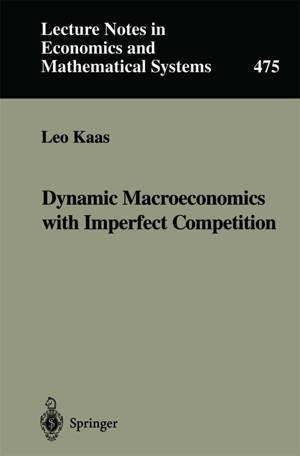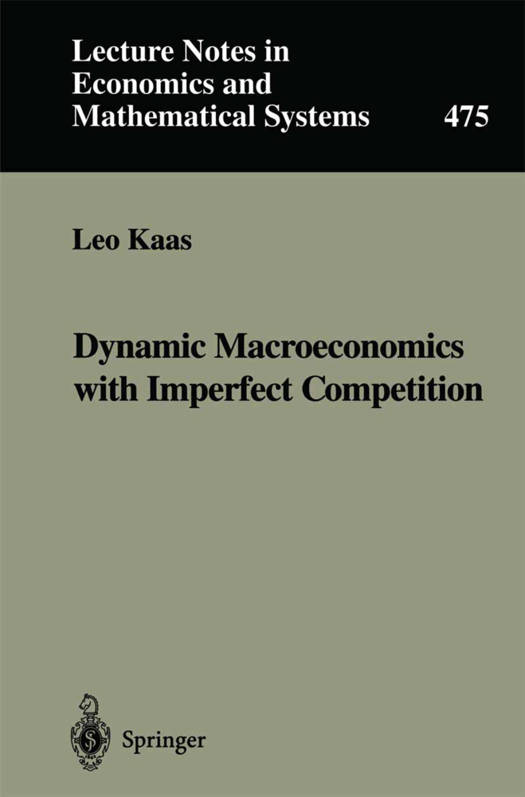
- Afhalen na 1 uur in een winkel met voorraad
- Gratis thuislevering in België vanaf € 30
- Ruim aanbod met 7 miljoen producten
- Afhalen na 1 uur in een winkel met voorraad
- Gratis thuislevering in België vanaf € 30
- Ruim aanbod met 7 miljoen producten
Zoeken
Omschrijving
This thesis was stimulated throughout the time of my participation in a research project on Dynamic Macroeconomics, supported by the German Research Foundation (DFG). The starting point was the central question of how to integrate price setting firms in a dynamic disequilibrium model. Almost all recent literature on imperfect competition in macroeconomics applies the objective demand approach by assuming that firms know the true demand curve they are faced with. While this approach can be ap- plied in temporary monetary equilibrium models, it proves inadequate for formulating price adjustment in a dynamic disequilibrium model, where it has to be replaced by the concept of subjective demand. Based on this distinction, the thesis starts out with a comparison of the concepts of subjective and objective demand in an abstract framework and surveys the literature on general equilibrium theory with imperfect competition. The objective demand approach is criticized not only on the grounds of its strong rationality requirements and existence problems, but also by the observation that it cannot be applied successfully to characterize determinate rational expectations equilibria in intertemporal macroeco- nomics. Finally, price setting firms using subjective demand functions are integrated in a dynamic disequilibrium model in order to study mo- nopolistic and oligopolistic price adjustment.
Specificaties
Betrokkenen
- Auteur(s):
- Uitgeverij:
Inhoud
- Aantal bladzijden:
- 155
- Taal:
- Engels
- Reeks:
- Reeksnummer:
- nr. 475
Eigenschappen
- Productcode (EAN):
- 9783540660293
- Verschijningsdatum:
- 19/08/1999
- Uitvoering:
- Paperback
- Formaat:
- Trade paperback (VS)
- Afmetingen:
- 156 mm x 234 mm
- Gewicht:
- 258 g

Alleen bij Standaard Boekhandel
+ 209 punten op je klantenkaart van Standaard Boekhandel
Beoordelingen
We publiceren alleen reviews die voldoen aan de voorwaarden voor reviews. Bekijk onze voorwaarden voor reviews.











